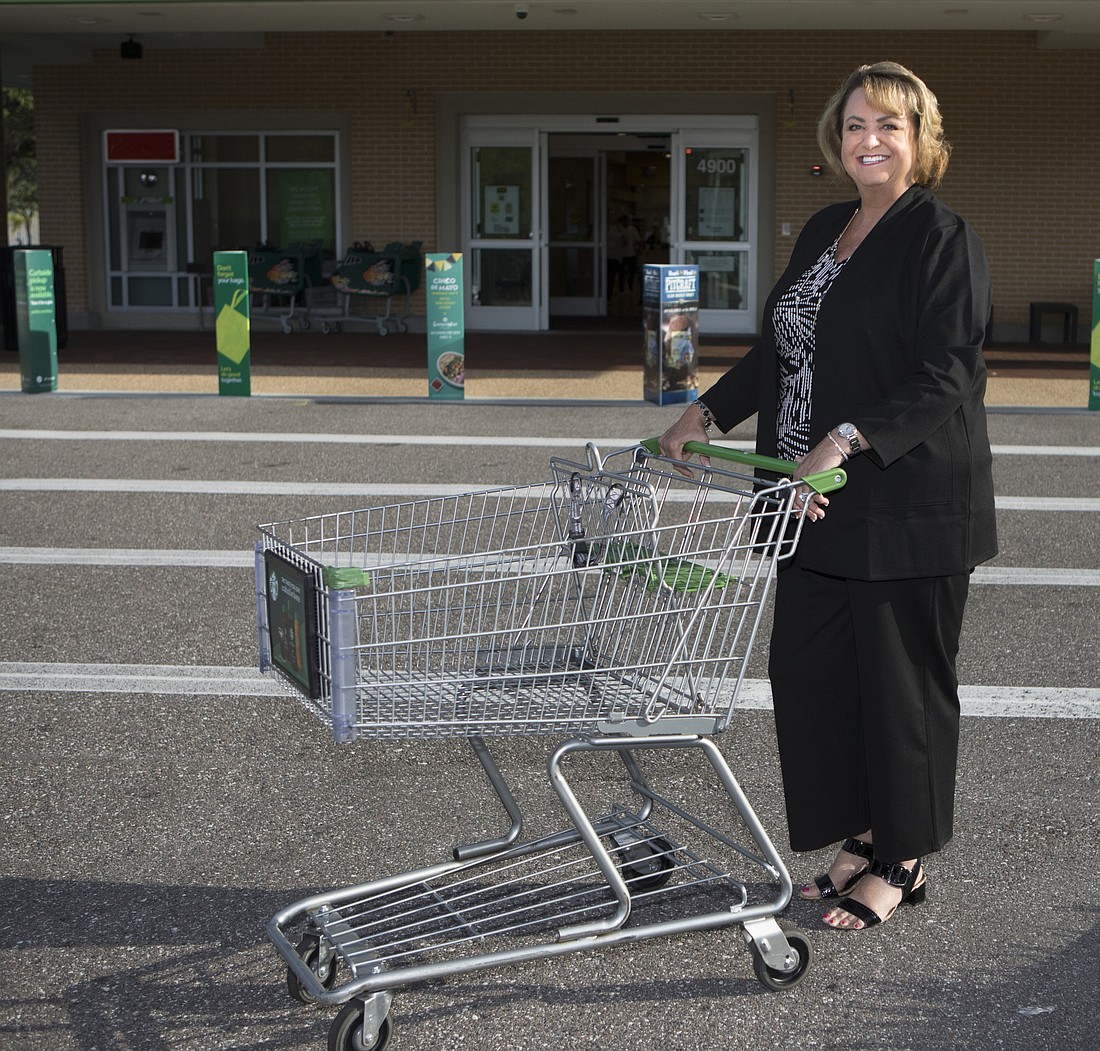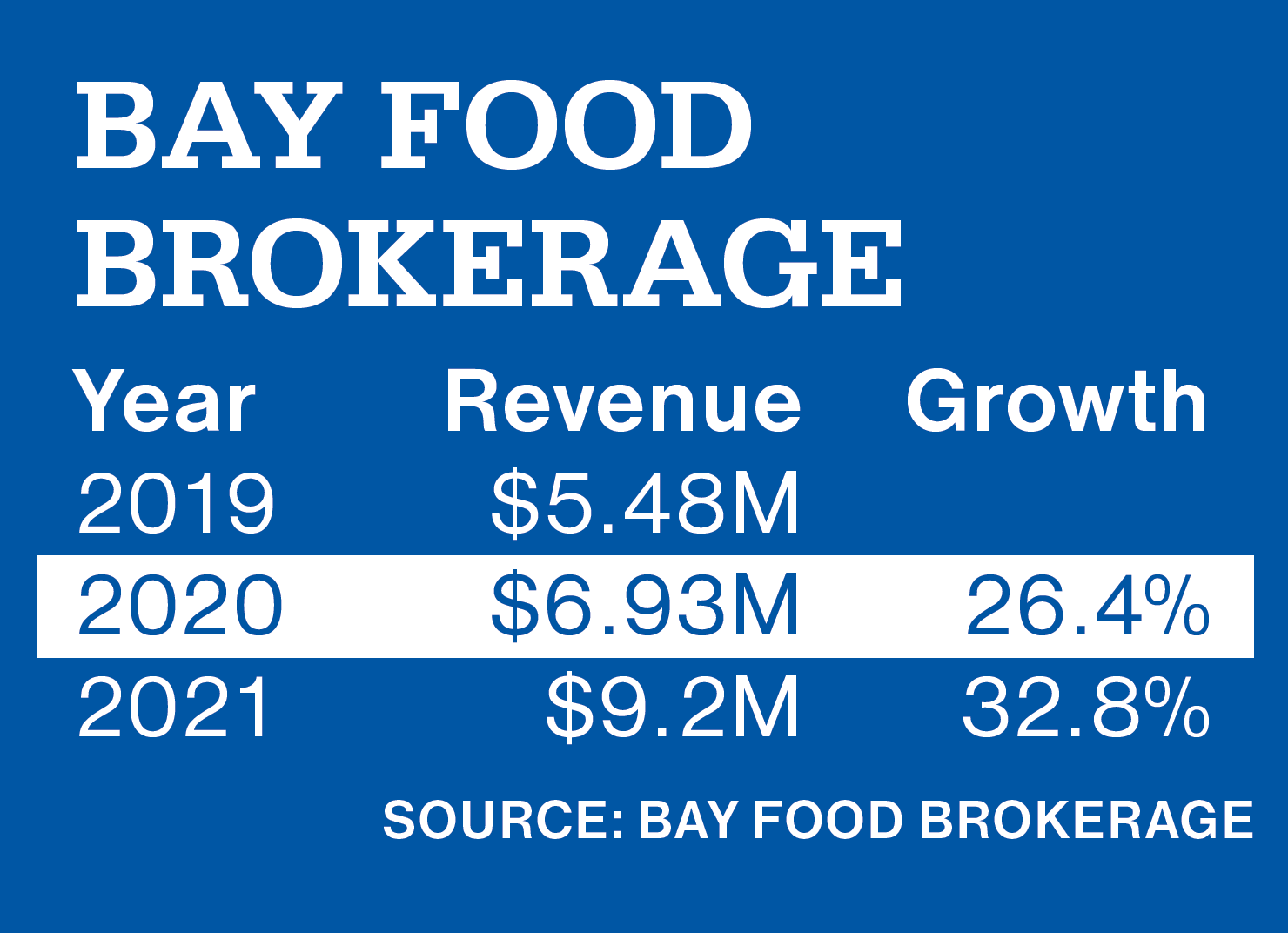- October 22, 2024
-
-
Loading

Loading

Company: The early 1990s were a lonely time for Cammie Chatterton, who says she was the only woman to own a food brokerage business in the male-dominated industry, which acts as a middleman between food manufacturers and retail outlets such as Publix and Winn-Dixie, handling and fulfilling orders and even arranging in-store demos, promotions and samplings.
“We process orders and make sure the product is delivered,” Chatterton says, “and we even take it a step further by having retail people in the stores who make sure the product is placed on the shelf correctly and the price tag is correct.”
Her tenure has seen the company attain double-digit revenue growth every year except one, “and that was single-digit growth,” she says. In December 2025, she plans to step down and hand over control of the business to her son, Chris Chatterton, a co-owner of the Tampa company. She founded the firm in 1993.
"If you truly believe in your product or company, don’t give up. Don’t set a time frame of one year or two years because then you’re giving yourself an out." — Cammie Chatterton
Best advice: With no other female food brokerage owners to turn to, Chatterton, in the early days of Bay Food Brokerage, says she often picked the brains of buyers who work for her retail clients.
“What I heard over and over is that you can’t just be the same as everybody else; you have to set yourself apart,” she says, “and don’t give up.”
She adds, “If you truly believe in your product or company, don’t give up. Don’t set a timeframe of one year or two years because then you’re giving yourself an out. If I hadn’t had belief, I wouldn’t be here today. I would’ve walked away.”
Tipping point: Chatterton’s tipping point didn’t come until her fifth year in business, when she finally gave herself a paycheck. Soon after, she says, “we started gathering steam with manufacturers who had good products.” Prior to that, she survived on a diet of only self-confidence and belief in what she was doing.
“I just assumed this was a company that was going to succeed,” she says. “But it was very, very hard those first few years, to the point where I should have thought, ‘What the heck did I do?’ But when the relationships between us and the retailers started coming together, that was an ‘a-ha’ moment for me.”
Biggest mistake: Chatterton says she makes mistakes every day, but her most significant misstep was her tendency in the past to assume what the customer is going to think or want.
“So often, I felt I was an expert in my field,” she says, “and going into a meeting, I would assume they’re going to go in this direction and they’re going to want that, or they’re not going to be interested in another item. And I would find out they wanted the opposite of what I thought.”
She says letting go of assumptions isn’t an easy or quick process.
“It took me a long time to say, ‘OK, you know what, I’m not going to make assumptions. I’m going to go in [to a meeting] as an open book and let them tell me what they want.’ That was hard to learn, because you’re supposed to be the expert.”
Up-at-night worry: Several worries weigh on Chatterton’s mind. Lately, the nation’s food supply chain has been her chief concern. “It scares me to death right now,” she says. Shortages and logistical hurdles lead to canceled orders, which means retailers and consumers don’t get the products they want and need — and brokers take big financial hits.
“That makes me worried for the company even though we’re very strong,” she says.
Also, Chatterton constantly worries about Bay Food Brokerage’s staff members.
“No owner of a company that has employees should ever go to bed at night without being worried about about every one of their employees,” she says, “because as an employer, you're responsible for those employees’ livelihood and their families. And if you don't take that personally upon yourself as a responsibility, then you shouldn't have employees.”
Best pandemic decision: Chatterton says quick, decisive leadership moves helped keep the company on its feet during the chaotic first weeks of the COVID-19 crisis. As an essential business, Bay Food Brokerage kept its doors open and its employees working the phones seven days a week during the pandemic’s first two months.
Almost as soon as lockdowns began, she told staff members they would “have to fight for every ounce of products that we could get … you have to do everything humanly possible — steal, borrow, beg, whatever you have to do with the manufacturers to get food shipped to our markets. It was on our shoulders to try to fill needs the best we could for retailers and consumers.”

Scariest pandemic moment: The memory couldn’t be clearer for Chatterton. She says the company received four phone calls in one day from major food manufacturers who said they had no product to ship. None whatsoever.
“They had no employees in the plants,” she says. “Because of the way the U.S. Department of Agriculture works, if somebody got sick on the line, everybody who worked on those manufacturing lines had to go home. When you start getting those calls, it’s scary.”
It was one of the few times in Chatterton's life when she felt despondent and hopeless.
“I am not a person who cries at the movies; I don’t cry over real-life [events],” she says. “But one day, Chris walked into my office and I literally lost it and started bawling. And it wasn't for my company — I knew we would be fine — but for the people who are going to go to the store in the next week and there's going to be nothing on the shelf. To know that in advance and not be able to warn people … I called family members and said, ‘I can't go into detail but I'm telling you, go right now, buy whatever you can find and put it in the freezer. You're going to need it.’”
Outside work: When Chatterton isn’t working, she loves to travel — avoiding tourist-y areas if possible. “I like to get out and see the country and how people live, and we try to eat at places that attract the locals,” she says.
The Chatterton family is also crazy about sports. They’ve been Tampa Bay Buccaneers season ticket holders since 1989, and they also bought Tampa Bay Lightning season tickets.
“We love going to the games as a family,” she says, “and when I’m not doing all that, I love being a grandma.”